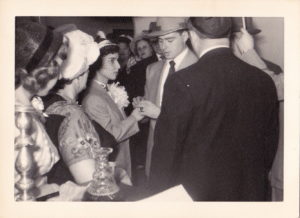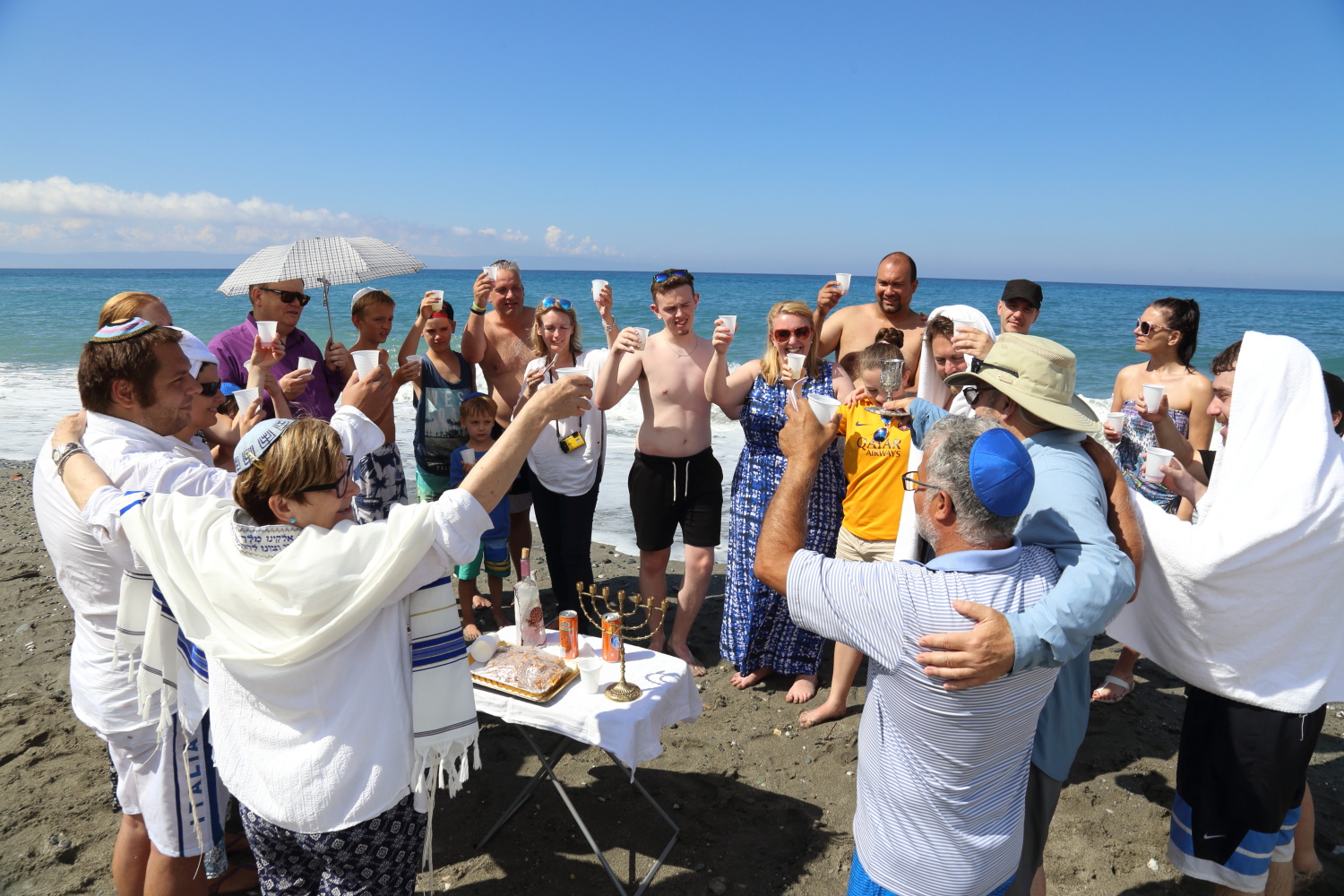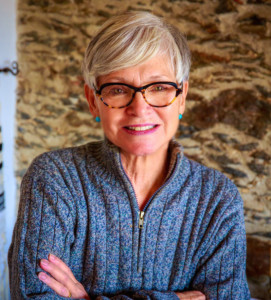I’m about to marry “Jewish” – should I convert?
Not long ago, in 2003 to be exact, a Sex and the City episode featured an anxious Christian, Charlotte York, beginning her journey to convert to Judaism. All set to marry Harry Goldenblatt who promised his mother that he’d marry Jewish, Charlotte hopes to make conversion prior to her wedding so she looks for a way to do it. During the program we find Charlotte rapping on the rabbi’s door hoping that after two rejections, he will finally agree to allow Charlotte to study to become Jewish.
What we don’t see in that exchange is any acknowledgement that Charlotte’s initial rejection has little basis in reality where modern Jewish conversion practices are concerned. What is accurate however is the desire on the part of many non-Jews to explore conversion options prior to marrying their Jewish spouse.
That’s how it happened that a young woman I’ll call Libby, phoned me. Libby’s first question had to do with interfaith weddings. Having officiated at several hundred interfaith ceremonies, I was ready to answer Libby’s questions including this one: “My fiancé and I have agreed to make a Jewish home and raise our children Jewish. Maybe I should convert?”
Libby went on to say that she had some misgivings. She had heard that conversions were sometimes forced, occasionally frowned-upon and that sometimes converts were not accepted as “real” Jews. “Will a rabbi and a synagogue welcome me?” Libby asked. “She wanted to know if I thought a conversion for her was advisable or even possible. I’ve been a rabbi for nearly 20 years so it wasn’t the first time I’d heard an “almost” bride or groom ask questions about conversion.
Jewish Conversion has always been possible. Several influential rabbis emphasized that in our holy books we read that God loves converts. In fact one book, the Talmud teaches that God dispersed the Jews throughout the world so that non-Jews would have the opportunity to become acquainted with them and choose to convert,
Other modern rabbis reminded us that rather than making it difficult, it should be Jewish policy to open the synagogue doors and accept everyone who wants to convert.
And finally, it’s a fact that conversion isn’t a new phenomenon. Back in ancient times when the Romans occupied Judea, Jews actively sought converts among the Roman soldiers stationed there and many thousands made conversion to Judaism.
But what about today? If someone like Libby wants to convert where does she start?
I advised Libby that because Judaism is not monolithic, meaning that there are a number of different branches or streams of Judaism, each stream has its own standards for conversion.
The modern Jewish denominations include Reform, Reconstructionist and Jewish Renewal and they often accept each other’s conversions, while the more traditional streams which include Conservative, Orthodox, New Orthodox and Chabad Lubavitch usually require that Jewish conversion take place under their auspices. Typically these groups only accept conversions supervised by their own rabbis. Yet, regardless of Jewish denomination, a period of study is basic to the conversion process.
For me and my rabbinical colleagues we often require a 12-18 month period of study that includes learning about Jewish history and tradition, participating in the holidays and festivals that happen during the Jewish year, and hands-on experience creating a Jewish home.
Not to be confused with taking college course, studying to become Jewish focuses on leading a Jewish life – incorporating Jewish ethics into one’s daily behavior, celebrating Jewish holidays and life cycle events and separating the material world from the spiritual by making Shabbat.
For Libby, whose husband-to-be and his family come from the Reform tradition, I recommended that she contact a Reform synagogue, meet with a Reform rabbi and take one of the many Jewish Interest classes that typically are offered by the Reform movement. And regardless of a denominational choice, learning about each branch of Judaism, its practices, beliefs, and requirements for conversion will help someone like Libby find the type of Judaism that is the best fit.
Libby was definitely interested and said that she would research the Reform movement but she had one major concern. Libby lived in a small Midwest town, far from a synagogue of any type. Driving distance to the closest big city where two modern synagogues were located was over one hour each way.
Libby said, “With my work schedule I’d never get to the evening classes on time and sometimes I travel for my job, which would make it hard to come to Shabbat services.” That’s when I suggested that Libby investigate Jewish studies programs that are available on line.
“A virtual conversion class!” Libby was excited and wanted to know more. In the age of digital learning, Judaism has not been left behind. Indeed there are several excellent programs, among them Darshan Yeshiva, where I serve as mentoring rabbi to my students who complete learning modules on line and, working with me as their virtual rabbi, learn how to incorporate Jewish tradition into their daily lives.
When the study period is complete and the candidates are ready, they appear before a “Bet Din,” a Jewish tribunal made up of a combination of rabbis and learned Jews. Although the Bet Din experience is not an examination, it is a time where the candidate answers questions about what she/he has studied and gives examples of Jewish traditions and how they have become a part of the potential convert’s daily life.
As the conversion ceremony approaches, men complete brit milah or circumcision. In the modern Jewish movements this can be accomplished with a procedure called Hatafat Dam Brit or the expression of a drop of blood.
Following the Bet Din, many students symbolize this enormously spiritual moment by immersing in a “mikveh,” a body of flowing water. There blessings are recited and the man or woman emerges from the water as a newly minted Jew – equal in every way to the man or woman born Jewish,
For students who find themselves isolated and a great distance from a Jewish community or for students whose work life or child care responsibilities are such that attending a weekly synagogue class is impossible, online Jewish studies can make all the difference for the person who wants to convert.
It’s worth remembering that centuries ago long before rabbis existed and before conversion was invented one could become Jewish in a very simple manner. How? Marry Jewish and you’re one of us. In the Torah we read that Sara did it. So did Rebecca, Rachel, Leah and Ruth. Each one became a Jew by marrying a Jewish person.
Jewish in a very simple manner. How? Marry Jewish and you’re one of us. In the Torah we read that Sara did it. So did Rebecca, Rachel, Leah and Ruth. Each one became a Jew by marrying a Jewish person.
That was then. For the recent take on conversions, a Pew Survey of American Jews discovered that there are approximately 79,000 adult Jewish converts. But an even bigger number, nearly 83,000, said they identify as Jewish even though they had no Jewish parents and had not made formal Jewish conversion.
So, nu, how did these people become Jewish? Many of them married Jews.
Others have Jewish grandparents or more distant Jewish ancestry, even back to Inquisition times, and they are reclaiming their Jewish roots and living a Jewish life. So what’s the appeal? Recent statistics show that Jews have become the most admired religious group in America, – a huge change from a 1960’s study when Jews were rated dead last on a scale of socially desirable ethnic groups.
For us rabbis, clearly there is an opportunity right in front of us.
For Libby and thousands of others it’s time to open our doors and open our hearts to those who feel an affinity to the Jewish religion, those who always felt Jewish and those who will marry Jewish and make Jewish families.
Certainly, some, like Libby, who marry Jewish will decide to officially “join” the Jewish people through rabbinic conversion. Jewish ethics tell us that we should take every opportunity to encourage those who choose this path
Jewish professionals emphasize that “conversion classes and experiences need to be excellent, accessible and, frankly, more affordable” so that those who want to become Jewish can do so easily and hassle-free. And once they’ve made conversion, and even before conversion, when potential Jews by Choice join a service to see what Judaism is all about, synagogues must become less judgmental, less suspicious and clique-ish and instead work to extend the hand of Jewish welcome, Like our Holy Books tell us, “God loves converts..” We should, too.

Special thanks to Zvi Zohar, Rabbi Victor Appell, Rabbi Alex Lillienthal, Stephen M. Cohen and Joy Levitt whose work forms the basis of this article.

